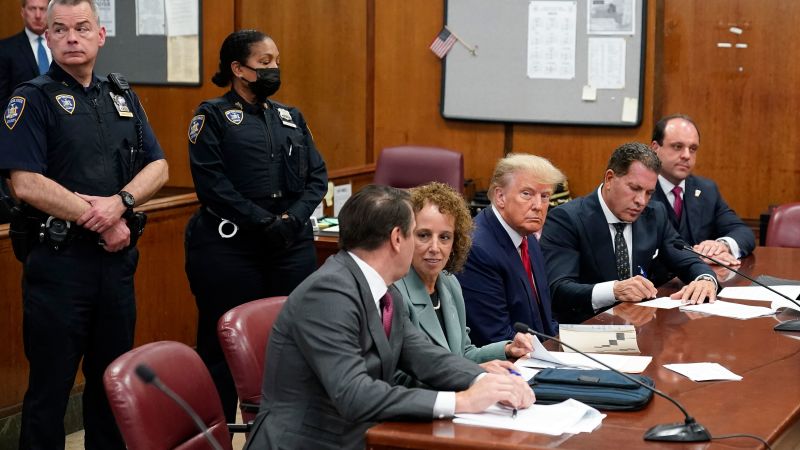Former President Donald Trump is facing his first criminal trial for his involvement in hush money payments made before the 2016 election to women who claimed to have had affairs with him. While Trump denies the affairs and has pleaded not guilty, there are questions about the potential consequences he could face if found guilty. Chief legal analyst Laura Coates explains that Trump could face more than a decade in prison if convicted of all the counts, although his lack of a criminal record and the nonviolent nature of the offenses could result in a lesser sentence or probation.
In the event that Trump is sent to prison, it raises the question of whether he would still have his presidential Secret Service protection. According to US law, former presidents and their spouses are entitled to lifetime Secret Service protection, unless they decline it. The trial is not expected to be televised due to New York state law restrictions, although photos and videos may be taken inside the courtroom. Trump will be required to be present in court every day, as New York law mandates that defendants be present at trial.
One of the key aspects of the case involves the testimony of Stormy Daniels and her alleged affair with Trump. While Daniels’ comments are likely to be a significant part of the case, the specifics of what she will be allowed to say remain uncertain until the trial unfolds. The payments made to Daniels and another woman were intended to conceal details from voters before the election, which violated campaign finance laws. Trump is accused of falsifying business records to use illegal campaign contributions to influence the 2016 campaign.
Prosecutors have charged Trump with falsifying business records to further campaign finance violations, connecting the hush money case to interference with the 2016 presidential election. The trial is expected to address this connection and the legal implications of the charges against Trump. Despite Trump’s efforts to delay the trial through appeals, the process is progressing in New York without significant delays. However, his legal strategy seems focused on delaying proceedings as much as possible to avoid a conclusion before the presidential election, resulting in a non-standard legal process.













